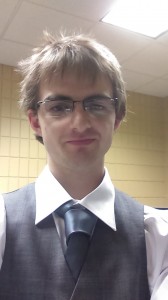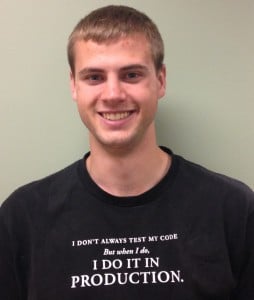GUEST SPEAKER LUNCHEON: The Rise of Network Scholars – Senenge Andzenge, Guest Presenter (Tuesday, March 15)
Traditionally, scholarship has been disseminated through journals which carry an editorial process that takes as long as a year from submission to publication. In many fast-moving fields, scholars are turning to faster – and sometimes more informal – ways of publicizing their work, including blogs, twitter feeds, and online journals. This change is impacting the way we define academic spaces and engage students in conversations about how to stay current in a field. Senenge T. Andzenge, the Instructional Technology Fellow of Digital Education and Innovation in the Department of Curriculum and Instruction at the University of Minnesota, will share his expertise in this area and lead a discussion on how learning is changing across the academy. Lunch will be provided to those who register by Friday, March 11th. Click here to register.
WORKSHOP: Making Social Media Productive in Learning – Senenge Andzenge, Guest Presenter (Tuesday, March 15)
While social media has a reputation for communicating trivia, Senenge Andzenge is working to find ways to expand classrooms and learning into the broader world using unique social media tools. In this workshop, repeated in the morning and afternoon for your convenience, Senenge will explore two unique low-cost tools that allow classes to productively participate in online (and ongoing) video discussions from mobile devices. These tools could be used for small group, project-based, or full class discussions, and allow students to see facial expressions, hear vocal inflection, and share experiences as they discuss. Please register by Friday, March 11. Register for one of the available sessions: 10-11am Session and a 2-3pm Session.
GUEST SPEAKER LUNCHEON: Project-Based Approach to Global Literacy (Thursday, March 24)
On Thursday, March 24 from 11:30am-12:30pm, Dr. Richard Vaz, Dean of Interdisciplinary Studies at Worcester Polytechnic Institute (WPI), will give a talk on WPI’s Global Projects Program for which undergraduates are required to complete projects, located at project centers across the globe, that emphasize real-world problem solving, communication, collaboration, and critical thinking. The projects are organized and overseen by WPI faculty and typically respond to problems identified by local organizations. Vaz will also present findings regarding the long-term impacts of project work completed away from campus. Lunch will be provided to those who register by Monday, March 21. Click here to register.
ASSESSMENT WORKSHOP: Advancing Global Literacy at Michigan Tech (Thursday, March 24)
In this workshop, scheduled for 3-5pm on Thursday, March 24, led by guest presenter Dr. Richard Vaz, participants will explore approaches to achieving goals for global literacy. Participants will start by identifying the global skills and abilities we want students to be able to demonstrate, and then consider different forms of evidence those skills and abilities might generate. Next, they’ll identify examples of assignments and activities that will generate the desired evidence. Finally, they’ll explore how those assignments and activities can fit into the curriculum, and discuss how to support successful and sustainable implementation. Refreshments will be provided to those who register by Monday, March 21. Click here to register.
WORKSHOP: Reducing Unintended Bias in the Classroom (Thursday, March 31)
It’s natural and necessary for people to use their “quick brain” to make judgments and generalizations below the level of conscious thought. In college classrooms, however, particularly those with few women and/or with other under-represented populations, these unconscious generalizations can impact student attitudes, behaviors and sense of belonging in subtle and unintended ways. The Engineering Inclusive Teaching Faculty Development series from WEPAN (the Women in Engineering Programs and Advocates Network) has provided an excellent preparation video and a wealth of scenarios on this topic. After viewing the preparation video, participants will gather for a coffee chat on Thursday, March 31, from 3:30-4:30pm, to explore the wealth of scenarios provided and also discuss specific strategies to help recognize some of these unconscious generalizations in order to reduce their negative impact on students. Refreshments will be provided to those who register by Monday, March 28. Click here to register.
TECHNOLOGY WORKSHOPS (February and March) Click below for additional information and registration or email ctl@mtu.edu to schedule a consultation.
- Panopto Recorder – Thursday, March 17 from 2-3pm
- Nb (Annotation and Discussion Tool) – Tuesday, March 22, from 3-4pm
- Mastery in Modules (Canvas Quizzes/Modules to Support Mastery)- Wednesday, March 23, from 3-4pm

